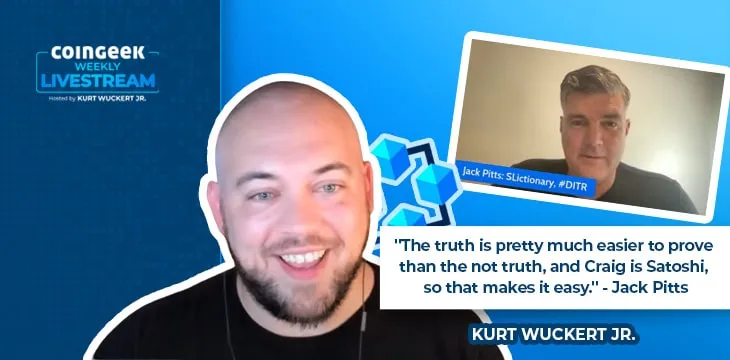SLictionary’s Jack Pitts predicts a “rather easy” win for Dr. Craig Wright in his trial against Magnus Granath in the latest CoinGeek Weekly Livestream, which also involves talks on BSV’s future and developments in the industry.
Click here to read the full article
Recommended for you
Bryan Daugherty returns to the CoinGeek Weekly Livestream to provide the latest updates on U.S. regulations and their implications for...
July 4, 2025
South Korea banned the Kimchi bonds in 2011, but a dip in USD liquidity in the forex markets has forced...
July 4, 2025

 07-06-2025
07-06-2025 





